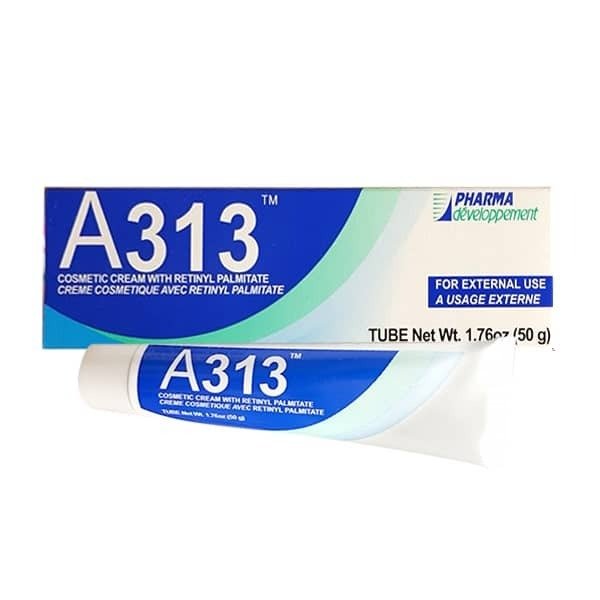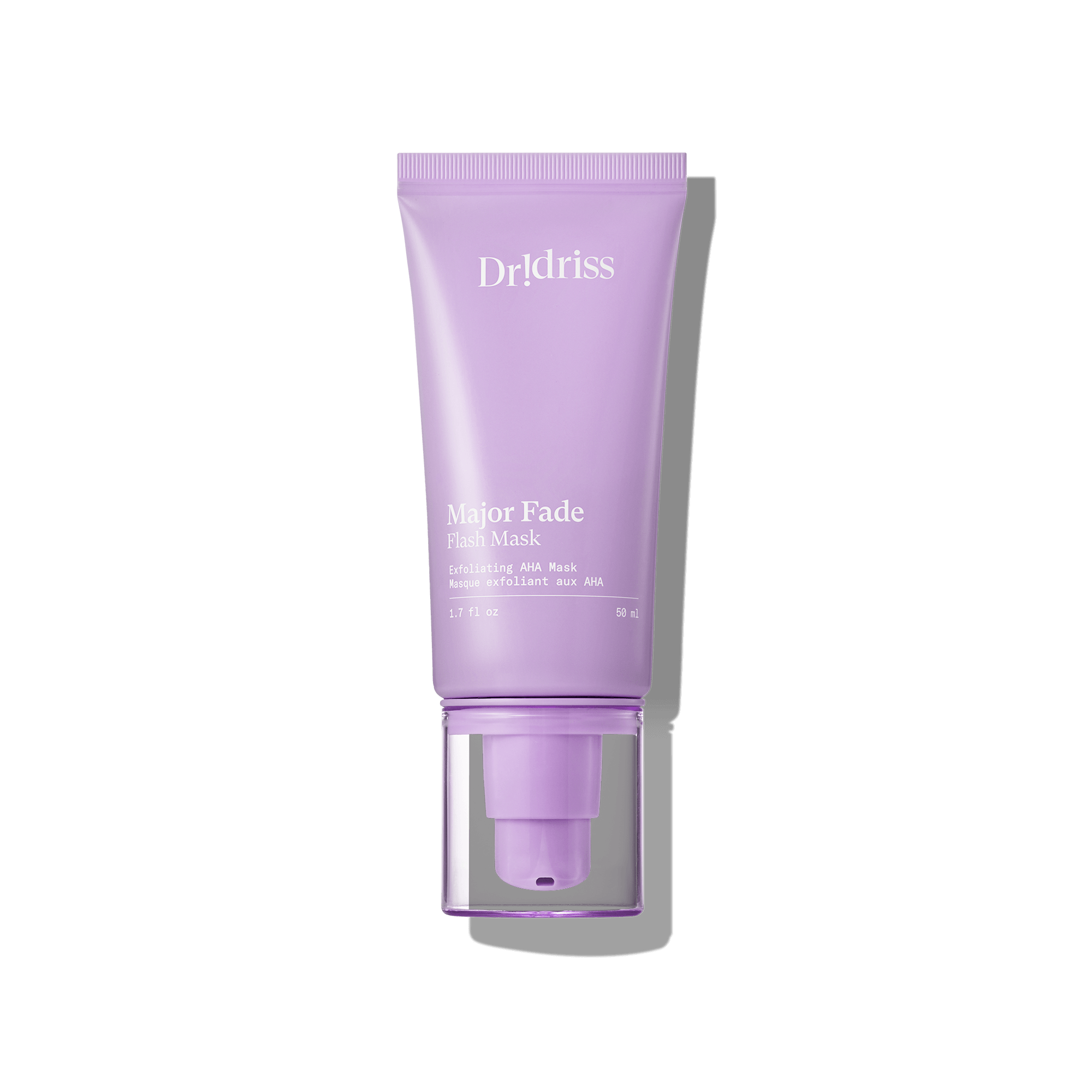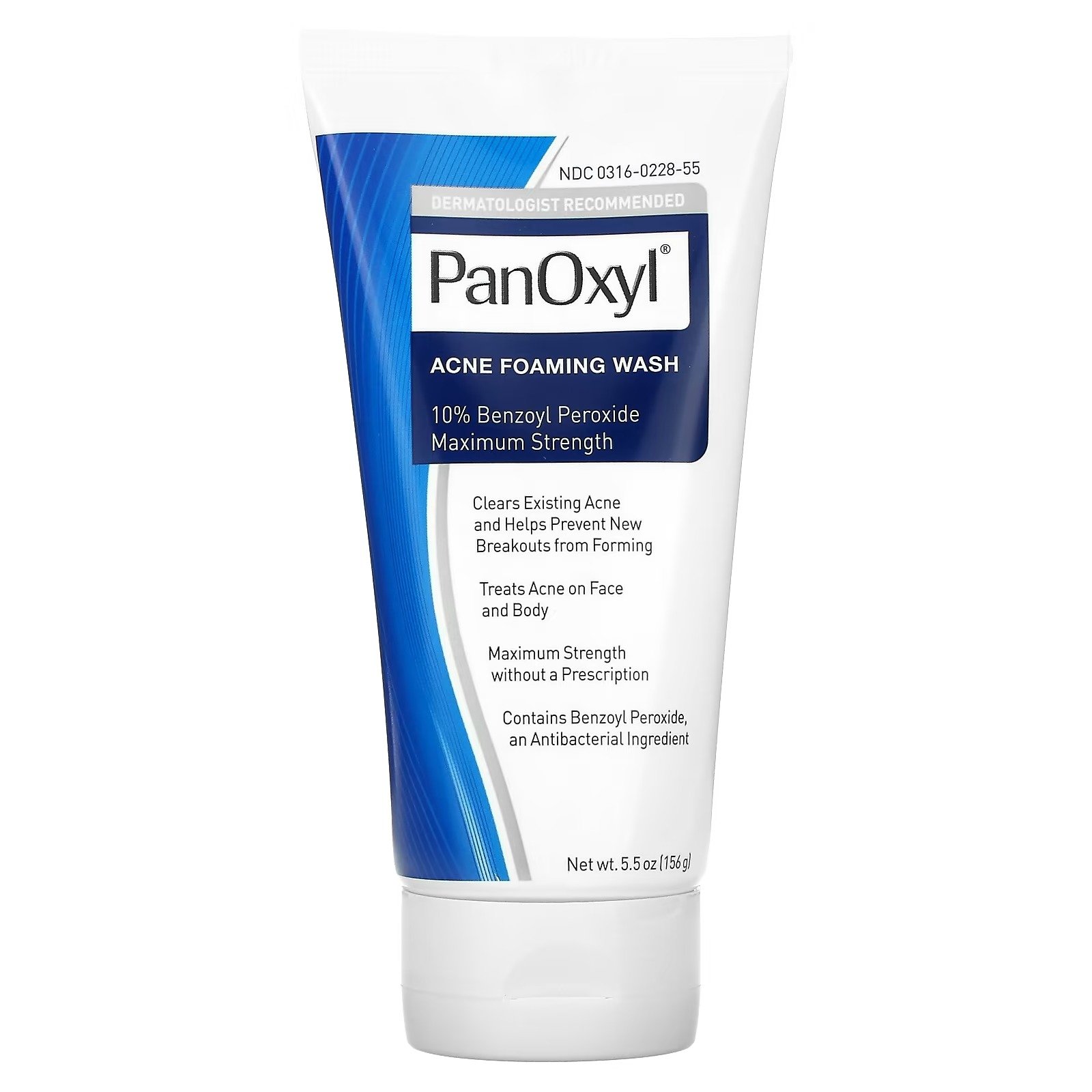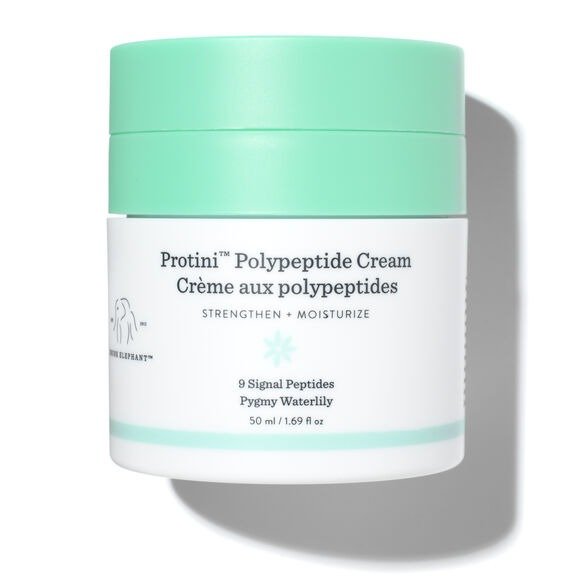Skincare Ingredients You CAN’T Mix
Skincare routines can be complicated. With an overwhelming number of products, treatments, and trends to choose from, it’s easy to feel lost in the world of serums, creams, and acids. One of the most important factors to understand is how the ingredients in your products interact with each other. While some combinations can boost your skin’s health, others can lead to irritation, reduced effectiveness, or even long-term damage. In this article, we’ll explore skincare ingredients that shouldn’t be mixed, debunk a few common skincare myths, and dive into recommended products for each category.
Skincare Myths: Separating Fact from Fiction
Before we dive into which ingredients you should avoid mixing, it’s essential to tackle some common skincare myths that often confuse people about how ingredients interact.
“All acids are bad for sensitive skin.” While exfoliating acids can be irritating for some, they’re not inherently bad. It's all about choosing the right acid for your skin type and using it in moderation.
“Retinol should only be used at night.” Although retinol can make skin more sensitive to the sun, it’s not the case that you can’t use it during the day, just be sure to apply sunscreen after using retinol.
“You need to use a lot of products to get good results.” A simplified skincare routine, with the right active ingredients, can often be more effective than using several products at once. Quality over quantity.
“Natural ingredients are always better than synthetic ones.” Not all natural ingredients are suitable for skincare, and some can be irritating. Similarly, synthetic ingredients like peptides can be incredibly beneficial for your skin.
Vitamin C + Retinol: A Complicated Duo
Vitamin C is a powerful antioxidant known for its brightening effects and ability to fight free radicals. Retinol, a form of vitamin A, promotes cell turnover and stimulates collagen production. While these two ingredients each bring great benefits to the skin, using them together can be problematic.
Why They Don’t Mix: Both vitamin C (especially L-ascorbic acid) and retinol are potent active ingredients. Vitamin C is acidic, which can destabilize retinol, rendering both products less effective. Additionally, using them together can cause irritation, redness, and peeling, especially for those with sensitive skin.
What You Can Do: To avoid irritation, consider using vitamin C in the morning and retinol at night. Alternatively, you can space them out on different days of the week.
Retinol + Exfoliating Acids: A Recipe for Over-Exfoliation
Exfoliating acids like AHAs (alpha-hydroxy acids) and BHAs (beta-hydroxy acids) are fantastic for sloughing off dead skin cells and promoting smoother, clearer skin. However, combining these acids with retinol, another ingredient known for its exfoliating properties, can lead to excessive skin cell turnover and irritation.
Why They Don’t Mix: Both retinol and exfoliating acids increase cell turnover, and when used together, they can leave your skin over-exfoliated. This not only results in irritation but also compromises your skin’s protective barrier, leading to dryness, redness, and sensitivity.
What You Can Do: Use exfoliating acids on separate days from retinol. For example, if you use a chemical exfoliant on Mondays, you could reserve retinol for Wednesdays. Ensure your skin is well-moisturized to avoid dryness.
Retinol + Benzoyl Peroxide: A Double-Edged Sword
Benzoyl peroxide is a popular treatment for acne due to its antibacterial properties, while retinol addresses acne and signs of aging by boosting cell turnover. These two ingredients can be very effective individually, but mixing them together can lead to unwanted skin issues.
Why They Don’t Mix: Retinol and benzoyl peroxide can deactivate each other when used together. Benzoyl peroxide can oxidize retinol, rendering it less effective. Additionally, both ingredients are drying and can lead to skin irritation and peeling if used simultaneously.
What You Can Do: Use retinol and benzoyl peroxide on alternating nights. This ensures that each ingredient works effectively without irritating your skin.
Benzoyl Peroxide + Vitamin C: A No-Go for Bright Skin
Vitamin C and benzoyl peroxide are both excellent for treating acne and brightening the skin, but they don’t play well together.
Why They Don’t Mix: Benzoyl peroxide can oxidize vitamin C, causing the vitamin C to lose its potency. This means you might not get the full brightening effect from your vitamin C serum. Additionally, the combination can cause dryness and irritation.
What You Can Do: Apply vitamin C in the morning and benzoyl peroxide at night. This ensures each product works to its full potential without canceling each other out.
Vitamin C + Copper Peptides: An Odd Couple
Copper peptides are known for their ability to stimulate collagen production and improve skin healing, while vitamin C helps brighten and protect the skin. However, the two don’t always work well when combined.
Why They Don’t Mix: Vitamin C is an acidic ingredient, and copper peptides work best in a neutral pH environment. When applied together, the acidity of vitamin C can hinder the effectiveness of copper peptides, rendering both ingredients less potent.
What You Can Do: Use copper peptides in the evening and vitamin C in the morning to get the full benefits of both. This allows each ingredient to work in an optimal pH environment.
Recommended Skincare Products for Specific Ingredients
Now that you understand which ingredient combinations to avoid, let's explore some standout products that feature each ingredient and why they’re worth considering for your skincare routine.
Vitamin C
Timeless
Timeless is a well-regarded brand for high-quality yet affordable skincare, and their C-Ester Serum is a standout in the vitamin C category. This product uses a stable form of vitamin C, tetrahexyldecyl ascorbate, that penetrates deeply into the skin. It not only brightens the skin but also provides antioxidant protection against environmental damage. Its gentle formula makes it suitable for those with sensitive skin, and its efficacy is well-documented with long-term use.
Allies of Skin
Allies of Skin offers the 20% Vitamin C Serum, which is an excellent choice for those looking for a high-concentration vitamin C product. This serum combines vitamin C with other powerful ingredients, including antioxidants and hydrating agents, to brighten the skin and even out tone while also providing protection against free radical damage. Its advanced formulation minimizes irritation, which makes it suitable for both beginners and experienced users of vitamin C.
Dr. Idriss
Dr. Idriss’s Major Fade is a highly praised vitamin C product that blends the powerful brightening effects of vitamin C with the nourishing properties of turmeric. The serum works to even skin tone, reduce hyperpigmentation, and give the skin a natural glow. It’s especially beneficial for those looking for a more radiant complexion without the risk of irritation, as the formulation is designed to be gentle yet effective.
Retinol
Ole Henriksen
Ole Henriksen’s Double Rewind Retinol line offers a powerful retinol treatment that is known for its smooth texture and skin-refining properties. This product is formulated with vitamin C to enhance the brightening effects, while the retinol works to fight signs of aging and acne. The combination of these two actives is carefully balanced to avoid irritation, making it a good option for those with sensitive skin.
SkinCeuticals
SkinCeuticals is a trusted brand when it comes to scientifically backed skincare, and its Retinol 0.5 offers a moderate concentration of retinol, ideal for those with more sensitive skin who want to see results without excessive irritation. SkinCeuticals also has a reputation for pairing its retinol products with soothing ingredients that reduce redness and dryness.
A313
A313 is a French pharmacy brand that has gained a cult following due to its high concentration of retinol. Known for its potent formula, A313 is perfect for individuals looking for a stronger retinol treatment that can tackle acne, fine lines, and pigmentation. However, due to its potency, it’s best used cautiously, with ample moisturizing.
Shani Darden
Shani Darden’s Retinol Reform is a favorite among those seeking a gentle but effective retinol treatment. It combines retinol with soothing ingredients, allowing for a more comfortable experience even for those new to retinol.
Exfoliating Acids
Dr. Idriss
Dr. Idriss offers an excellent range of exfoliating products, including Flash Mask, which combines lactic acid and other exfoliating agents. This serum smooths and brightens the skin without stripping moisture, thanks to its hydrating properties.
Paula’s Choice
Paula’s Choice is well known for its effective and gentle exfoliants, and their Skin Perfecting 2% BHA Liquid Exfoliant is a standout. This product uses salicylic acid to deeply exfoliate and clear out pores without causing excessive dryness.
InnBeauty Project
The Pore Refine Texture & Pore Serum by InnBeauty Project is a great way to introduce exfoliating acids into your routine. This product includes both AHA and BHA, along with calming ingredients like aloe vera, ensuring that skin stays smooth and hydrated.
Benzoyl Peroxide
Panoxyl
Panoxyl’s Acne Foaming Wash is one of the most well-known benzoyl peroxide products on the market. It’s a potent yet affordable option for treating acne, helping to kill acne-causing bacteria while preventing breakouts.
The Inkey List
The Benzoyl Peroxide Cleanser by The Inkey List is another great option. It is a gentle formulation that targets acne without over-drying the skin, making it perfect for those with sensitive skin looking to reduce breakouts.
Paula’s Choice
Paula’s Choice offers a Benzoyl Peroxide Treatment that works effectively to tackle acne without causing irritation. The product also contains soothing ingredients, making it an excellent choice for acne-prone skin that is prone to redness.
Sofie Pavitt
Sofie Pavitt’s Reset Benzoyl Peroxide Acne Treatment Mask is a favorite for people with persistent acne. Its high concentration of benzoyl peroxide works well to clear pores and treat inflamed breakouts, leaving the skin smoother and clearer.
La Roche-Posay
La Roche-Posay’s Effaclar Duo is another top choice for benzoyl peroxide treatment. Its combination of benzoyl peroxide and niacinamide helps fight acne while reducing redness and soothing the skin.
Neutrogena
Neutrogena’s Stubborn Acne Morning Face Treatment is a great budget-friendly option. It contains 2.5% benzoyl peroxide and is formulated for sensitive skin, reducing acne without causing irritation.
Copper Peptides
The Ordinary
The Ordinary’s Multi-Peptide + Copper Peptides 1% Serum contains copper peptides, which help stimulate collagen production and promote skin healing. The formula is simple yet effective, helping to address signs of aging while keeping skin smooth and plump.
Biossance
Biossance’s Squalane + Copper Peptide Rapid Plumping Serum is a standout product that combines copper peptides with squalane for extra hydration. This serum works to plump the skin, reduce the appearance of fine lines, and improve skin texture.
Drunk Elephant
Drunk Elephant’s Protini Polypeptide Cream uses peptides, including copper peptides, to firm and hydrate the skin. The combination of peptides in this moisturizer works to repair the skin’s barrier and restore elasticity, making it perfect for those looking for an anti-aging boost.
By understanding which ingredients to avoid mixing and carefully selecting your products, you can build a skincare routine that targets your concerns while keeping your skin healthy and glowing.






























Exfoliation is neither a miracle nor a menace. It is a tool, useful when applied with intent and restraint, damaging when misunderstood or overused. To understand where it fits, it helps to step away from trends and return to fundamentals: what exfoliation actually does, why skin needs it and how different acids behave once they touch the face.